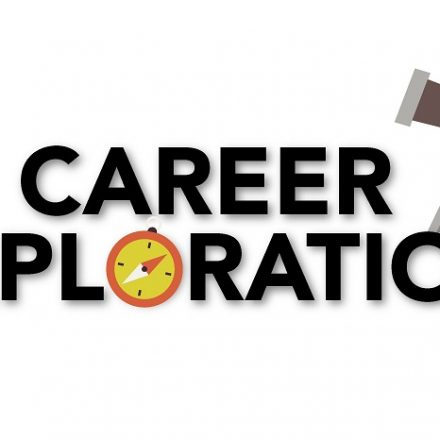
Why career guidance counseling is a rewarding career
When you think of a counselor, what comes to mind? Your immediate response might be to envision someone helping individuals struggling with mental health issues. Mental health counseling is incredibly important and beneficial, but it is not the only form of counseling on the market. In fact, one of the most popular kinds of counseling right now is career counseling. Career counseling helps people of all ages find work that matters to them and ace the interview to land the job. While this is beneficial to the person searching for work, it is just as rewarding for the counselor providing guidance.
Let’s look at career guidance counseling and why it is an incredibly rewarding role.
What is a career guidance counselor?
A career guidance counselor helps clients find jobs – not just any jobs, but jobs that they truly want and enjoy. They work to identify strengths, interests, and weaknesses to determine the best fit for them in the industry of their choice and will monitor job openings and potential career choices. To put it simply, career counselors collaborate with their clients to find work that they find meaningful and that they will excel at.
Note that while it might sound simple at first, career guidance is more in-depth than simply surfing the internet for job openings. They help their clients consider their talent and skill set within different careers and roles, then use their responses to further narrow down their career choices. Career guidance counselors also help improve practical skills like resume and cover letter writing, interviewing, and professional etiquette.
When you think of career counseling, think of professionals as experts in finding the right work for clients. They have resources available that most job seekers don’t, and they have the experience in job searching to connect their clients with other people and career opportunities they might not find on their own. They act as coaches, advisors, instructors, and confidants throughout the job-seeking process. And with the help of an established higher education entity like Walsh University, you can become a career counselor and help people find work they love, too.
What do career guidance counselors do?
While we mentioned some of this briefly above, career counselors do many different things for their clients. First, it is important to note that not all career guidance counselors work with the same people. Some prefer working with traditional students, for example, while others seek out military service members in need of translating their training into tangible skills in the job market. Still others work with individuals undergoing a career change while others work with people who have recently sustained permanent serious disability and can no longer continue in their job of choice.
All of these populations have certain factors that must be taken into consideration when working with them, but there are a few things career guidance counselors do across communities. Here are some of the responsibilities that are nearly universal in measure.
- Administer career and personality tests to assess their client’s interests and career aptitudes
- Identify career strengths and possibilities and educate their clients about them
- Connect clients with community resources like educational programs, job training opportunities, and more
- Help clients find internship and job openings
- Teach clients to create effective cover letters and resumes
- Strengthen the client’s interviewing techniques via mock interview practice
While the above is a good introduction to the roles and responsibilities of the career guidance counselor, there are even more to consider. This list is not exhaustive, in other words, and if you’re interested in learning about additional duties and expectations, you should be able to find further clarification fairly easily using your search engine of choice.
In addition to the above, one of the biggest things that career guidance counselors do is tailor their approach and services to meet individual client needs and expectations. Working in schools naturally leads to career guidance counseling focused on academic success and extracurriculars, for example, while college advisors focus more on internships, resume writing, and job interviewing skills.
Here are some communities that career guidance counselors typically work with, but similar to the list above, this is not a definitive collection.
Elementary and middle schoolers
You might think that elementary school seems quite young to be worried about a future career, but job counselors focus on more than job openings, as we’ve explored above. When working with elementary school students, they focus primarily on the children’s developmental needs. This includes working with school administrators and teachers to build a curriculum that adequately supports the child’s healthy development. Career guidance counselors working with elementary school students also typically meet with parents to overcome a child’s challenges and set them up for future success.
Middle school advisors do much of the same but with the addition of decision-making and time-management skills. It is at this point that future career opportunities begin to materialize, and counselors can help students research areas of interest, too.
High schoolers
High school students focus more on college planning and career planning than they do on developmental skills. The goal of career counselors in this age range is to help students transition to university or vocational training successfully. They want their students to be in the right training or academic classes for their interests and future career goals. Career guidance counselors working with high schoolers also help students connect with resources to help with the costs of higher education and comprehensive vocational education programs.
College students
Career counselors working with college students fill a critically-important need on campus. They help students pick a major, develop interviewing and writing skills, and find internships that support their interests and career goals. Without career counselors, students might flounder in their decisions and end up much further in debt than they need to be, assuming they are accepting student loans. Even if they aren’t, career guidance helps students stay focused and move through their courses consistently.
Professionals
Professionals aren’t immune to job struggles. Many people are searching for something new – something better. This leads to people, sometimes with many years of experience behind them, searching for a job just a little different from their current job. Others want to move in the exact opposite direction. Regardless of whether the change is a small one or a big one, career coaches offer guidance and aid to professionals who have already entered the workforce. They can also help resolve issues at work and connect professionals with educational and vocational opportunities.
Why is career counseling a rewarding career?
Career counseling is a great career path for many different reasons. In terms of career growth, for example, career guidance counseling is poised to grow 10% across the next decade, from 2021 to 2031. This is faster than average and is expected to grow in the future as the demand for both employees and jobs continues to boom.
Beyond job security, career counseling is a very rewarding field for people who want to help those around them. From helping some break a string of bad interviews to finding the perfect job for a long-term job seeker, there are a lot of reasons to love working in career counseling. Let’s take a look at some of the biggest below!
Reduce unemployment
The unemployment rate might fluctuate, but it never quite reaches zero. According to the U.S. Bureau of Labor Statistics (BLS), the unemployment rate for July 2023 was 3.5%. This doesn’t sound like an awful percentage, and to be fair, it could be much worse. But that still means that 3.5% of adults able and those eligible to work are not working. Career guidance counselors can help people who are struggling to find a job locate the right position for their needs. Not only does this make a big difference in someone’s life, it is also a net positive for society in general.
Help seekers find fulfilling careers
Employees today are perhaps more willing to leave their careers behind if the work isn’t fulfilling than at any other time in recent history. This emerging characteristic has caused quite a stir in the business industry as big businesses begin to worry that their employees could be on the way out with little prior notice. For their part, employees are just desperate to do something they actually like all day long.
As a career guidance counselor, you get to work with people leaving unfulfilling careers and are in search of something new and meaningful. From professionals with 20 years in the industry they’re leaving to new candidates just entering the job market, you have the opportunity to make dreams come true. Counselors can help both workers and employers alike, in fact, as they refer appropriate candidates to businesses to fill spots left vacant by their clients.
If you enjoy the thought of showing someone that they can have the job of their dreams, career guidance counseling is the right fit for you.
Watch your actions ripple
This one might not make sense right away, but stick with us. When you help people find work, your actions sometimes have critical impacts on everyone related to the employee in question. You might imagine this means their loved ones, but the truth is that your work has the potential to influence far more people than the families of your clients alone. Let’s say that you help a few social workers find the right fit for their goals and skills. Thanks to your hard work, people in need now have more resources to interact with and potentially utilize, and their success has even further ripples to their family and friends.
When you help people find work, you’re not only helping those immediately influenced financially by the employee; you’re also helping people who now have access to a passionate worker who truly believes that they’re doing it right and will potentially go above and beyond to help their customers or clients.
Relatively few jobs offer this kind of impressive reach.
Help students succeed
So far we’ve covered how career counselors help professionals find the right job, but we haven’t spent much time talking about how they help students. The role of a career guidance counselor is critical to student success.
Not only do counselors have the ability and authority to assess a student’s potential and address gaps in their education or skills, but they also have access to resources that can help people pursue higher education. Some students have no idea how to go about paying for school outside of taking out loans, especially when they come from a family with little financial means. As a career guidance counselor, you have the opportunity to interact one-on-one with these students and guide them toward resources that make their dream of attending a university a reality without putting them in debt.
Are you looking for a rewarding career that allows you to help people find fulfilling jobs and help the people around them? Career guidance counseling is an excellent career choice. If you’re interested in learning more, reach out to a reputable university and ask for information about their degree options!





